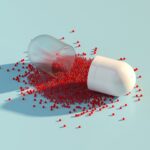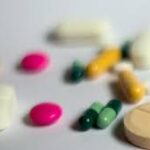Self-Medication in Africa: Hidden Dangers You Should Know

Across Africa, self-medication is a growing trend fueled by poverty, limited access to healthcare, and the widespread availability of over-the-counter medicines. From painkillers and antibiotics to traditional herbal remedies, many Africans rely on self-treatment instead of consulting healthcare professionals.
While it may seem convenient, self-medication comes with serious health risks—from drug resistance and toxicity to life-threatening complications. This article explores the causes, dangers, and solutions to the self-medication crisis in Africa.
Why Self-Medication Is Common in Africa
1. Limited Access to Healthcare
In rural areas, hospitals and clinics are scarce. Patients often turn to pharmacies, patent medicine vendors, or even street drug sellers.
2. Cost of Medical Care
High consultation fees and poor insurance coverage make professional healthcare unaffordable for many.
3. Cultural Beliefs
Traditional medicine and herbal remedies remain deeply rooted in African culture, encouraging self-treatment without professional advice.
4. Easy Access to Drugs
In many countries, antibiotics and prescription drugs can be bought without a prescription, making misuse easy.
The Dangers of Self-Medication
1. Antimicrobial Resistance (AMR)
Improper use of antibiotics—such as stopping treatment early or using the wrong drug—fuels antibiotic resistance, one of Africa’s biggest health threats.
2. Misdiagnosis
Without medical guidance, patients may treat symptoms incorrectly, masking serious illnesses like malaria, tuberculosis, or cancer.
3. Drug Interactions and Toxicity
Combining multiple drugs without professional supervision can cause harmful interactions, liver damage, or overdose.
4. Delayed Medical Care
Relying on self-treatment often delays diagnosis, making diseases harder to treat and increasing mortality risks.
5. Addiction and Dependency
Overuse of painkillers, cough syrups, and sedatives can lead to drug dependence and abuse, especially among youths.
Case Study: Nigeria’s Antibiotic Misuse
In Nigeria, antibiotics like ampicillin and tetracycline are widely sold without prescriptions. Studies show that over 70% of Nigerians self-medicate with antibiotics, contributing to rising AMR and treatment failures.
Solutions to Combat Self-Medication
-
Stricter Regulation – Enforce prescription-only sales of antibiotics and high-risk medicines.
-
Public Awareness Campaigns – Educate communities about the dangers of self-medication and the importance of professional care.
-
Empowering Pharmacists – Train pharmacists to provide counseling and act as gatekeepers against irrational drug use.
-
Improve Healthcare Access – Expand affordable healthcare coverage to reduce reliance on self-medication.
-
Leverage Technology – Promote telemedicine and digital health tools for quick, affordable consultations.
Conclusion
Self-medication in Africa is a silent health crisis that threatens lives, worsens antimicrobial resistance, and undermines healthcare systems. Tackling it requires a multi-pronged approach—strengthening regulation, improving healthcare access, empowering pharmacists, and raising public awareness.
By shifting from dangerous self-treatment practices to professional, guided care, Africa can protect its people from preventable drug-related harm.
Written by Fawzi Rufai, Medically Reviewed by Sesan Kareem



